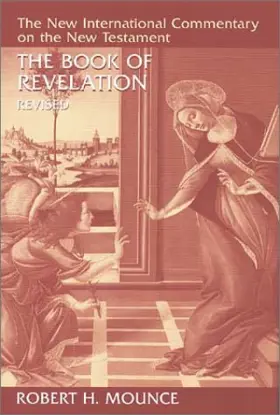

The Book of Revelation (Rev. ed.)
in New International Commentary on the New Testament
Pages
439
Publisher
Eerdmans
Published
1/1/1997
ISBN-13
9780802825377
Collections
This book appears in the following featured collections.
- First Commentary Set by Brian LeStourgeon
- Recommended NT Commentaries by Denver Seminary Journal
- D. A. Carson's Commentary "Best Buys" by D. A. Carson
- Ultimate Commentary Collection: NT Technical by John Glynn
- New Testament Advanced Commentaries by Moore Theological College Journal: Societas
- Building an NT Commentary Library by Invitation to Biblical Interpretation (Kostenberger & Patterson)
- The Pastor’s Bookshelf by Scot McKnight
- Recommended New Testament Commentaries for Evangelical Pastors by Thomas R. Schreiner
- TGC: Preaching Commentaries by The Gospel Coalition
Reviews
Carson praises this commentary as “a learned and well-written work that not only explains the text satisfactorily in most instances but also introduces the student to the best of the secondary literature.” In this way, it has similar strengths to Koester (below) but requires less knowledge of Greek.
[Full Review]
A little scant on detail, but avoids the speculation on minute details which we see in Beale and Aune.
One of my favorite commentaries! I don't hold to pre or postmillennialism (this book's tags). However, the amount of material I would disagree with on those subjects could probably be confined to less than a dozen pages. Out of four commentaries I read, this was a joy; far and away my favorite. Some commentators seem to write just to fill up space, but certainly not Mounce who covers so much without wasting any space. I would've liked to see some more interaction with the OT, but I received Beale's commentary recently and I'm sure it will fill that gap.
Mounce’s treatment of Revelation is now available in a revised edition (dated 2008). Carson praises his commentary as “a learned and well-written work that not only explains the text satisfactorily in most instances but also introduces the student to the best of the secondary literature” while saying that Mounce’s special strength is in “his appropriate and balanced use of both Jewish and Greco-Roman sources.” He also points out that this may be the best option for someone whose knowledge of Greek is minimal or nil.
[Full Review]
Mounce’s commentary is brief because he does not spend the time searching for John’s sources or worrying over potential parallels. While the commentary is quite aware that John stands on the foundation of the Hebrew Bible and that there is parallel material in other Jewish apocalypses, Mounce wrote his initial version of this commentary prior to the rise of scholarly preoccupation with sources. Mounce reads Revelation as reflecting his own culture, but understands that “the predictions of John…will find their final and complete fulfillment in the last days of history” (45, first ed.). He finds this blending of John’s present and future consistent with the nature of prophecy in the New Testament. In the preface to the revised edition of commentary Mounce states that he still has the same basic approach to the book and he remains a premillennialist, but he has a deeper appreciation for other views of the book. (Another difference between the editions is that the Revised uses the NIV rather that the 1901 ASB). The body of the commentary is based on the English text, with details of Greek grammar relegated to the footnotes. I think that this is a good commentary for the busy pastor or layman who wants a bit more in-depth study without the details of Aune or Beale.
[Full Review]
This commentary took evangelicals away from silly speculation to a more serious interaction with the text of Revelation
[Full Review]
Obviously, your preference for a Revelations commentary will depend on your theology. Mounce is very clear with a good understanding of apocalyptic genre and a cautious premillennial hermeneutic. Osbourne (BECNT, 2002) is also good for survey of views. Beale (NIGTC, 1999) is solid, technical, amillennial. Start with Mounce and then add others as you figure out what you are doing.








